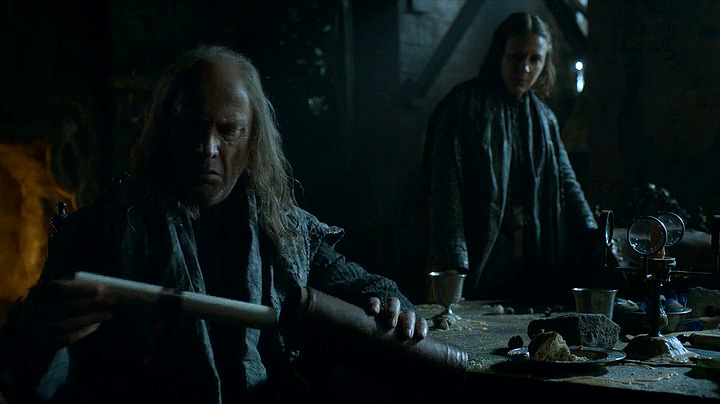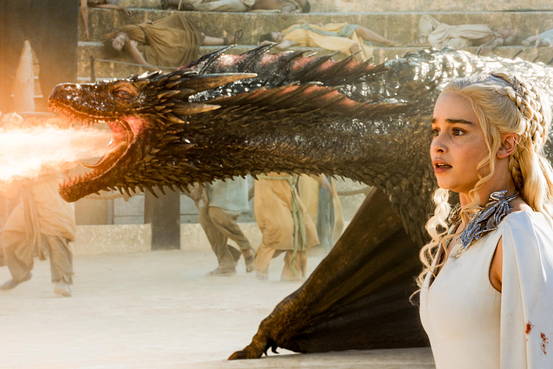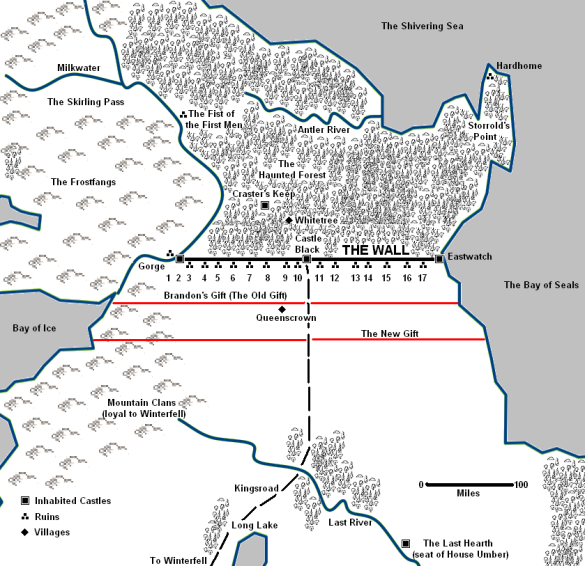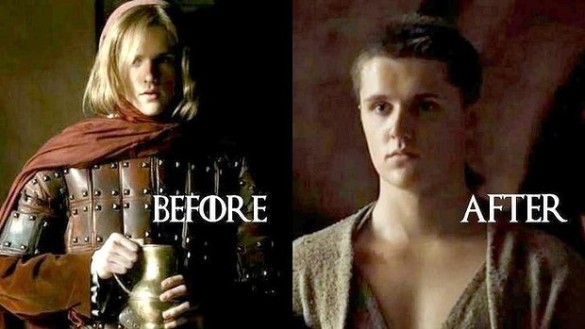DISCLAIMER: THERE ARE NO SPOILERS IN THIS ARTICLE. I HAVE NO KNOWLEDGE OF WHAT IS TO TRANSPIRE IN THIS STORY. ANY VIEWS OR CONTENT EXPRESSED ARE SOLELY PERSONAL THEORIES, OPINIONS AND INSIGHTS.
The Bells
By now, everybody knows that in the world of Thrones, penultimate episodes are a big deal. Ned’s beheading, The Battle of Blackwater Bay, The Red Wedding, The Battle of the Bastards — some of the most epic and memorable events in Thrones history, all happened in the second to last episode of their respective seasons. So, in what was not only the penultimate episode to this season, but the penultimate episode to the entire series, things were taken to a whole new level. In trying to balance the sheer “hugeness” of this episode, with writing and storytelling that continues to feel uneven and ill-conceived, I suspect that many viewers will be left asking themselves how content they truly are with this episode.
To that end, I’d like to point out that in any given episode, there is no harm in separating an assessment of the episode’s production from the actual story told. On the production side, there are many technical and artistic disciplines at work. To name a few, there’s the director’s overall vision of how an episode will be delivered, special effects, music, cinematography, etc… And on the storytelling side, the same can be said: writing and dialogue, character development, pace of storytelling — these all shape the overall narrative we are experiencing. So, it would be foolish to try and lump all of these together with a wholesale assessment of the success of a given episode. When you go to a restaurant, you may ultimately determine whether it was good or bad, but more likely, you pass judgement on the food, the ambiance, the service — all distinct elements — one of which could be great, while another not so much.
So before we jump into a more detailed assessment of this week’s episode, I’d like to separate the production from the story. Without doubt, from a production standpoint, tonight’s episode was one of the most successful we’ve seen to date. Delivering 80 minutes of epic chaos and destruction and fire and blood and everything else that went into this episode is no easy feat. The “hugeness” of this episode cannot be denied, and Thrones once again set a new standard for the production value of a television show — a standard once reserved only for the big screen. I start by calling out the success of tonight’s production for a smaller and bigger reason. The smaller reason: because it truly was special and commands tremendous admiration; the bigger reason: I want to get it out of the way early so that it does conflate further commentary which will be focused on the story itself. After all, it is the Game of Thrones story — the magic of its characters, the richness of its history; the intrigue of its myth and legend — that won my heart so early on. And while I would never want to minimize all that this show has achieved on the production front, the story itself will simply always be much more important to me.
So, with that in mind, let’s jump into the story.
The Bells
The second to last episode in the Game of Thrones series was entitled The Bells, a symbolic foreshadowing of some of the milestone events that would unfold in the episode. The ringing of King’s Landing’s bells generally means one of three things: a city under siege, surrender, or the death of a king (or queen). Given the gravitas of these events, when you hear the ring of a King’s Landing bell, you know there is some serious weight to what it signifies. And tonight, the ringing of King’s Landing’s bells underscored all three: the siege of the city, the surrender of its troops, and the death of its queen.
But tonight we saw so much more — enough to keep those bells ringing for many days to come. Destinies were fulfilled as Dany followed in the footsteps of her father and became The Mad Queen. Heartbreaking final goodbyes were said between Tyrion and Jaime; The Hound and Arya. Regret is everywhere, as characters such as Tyrion and Jon realize their mistakes — ones that may well alter the course of history. And the consequences of those mistakes — almost too much to watch — could not have been higher. Fire and blood is everywhere, and death is ubiquitous. There is no coming back from tonight’s episode, and although there is still one final twist to be told in the finale episode, this story is all but told.
Dragonstone
The episode kicks off at Dragonstone as we see Varys writing letters stating that Jon, not Dany, is true heir to the Iron Throne. Over the years, there were many questions as to the true motives of Varys, and at times, it was not clear if he could be trusted. Well, it’s become quite clear that unlike many other characters in the show, Varys was always forthright about his true motives: to protect the realm and its impoverished citizens who couldn’t protect themselves. To that end, he is steadfast in his belief that the realm is best off in the hands of Jon, so much so that he is willing to die for it. In last week’s episode, he was forthright with Tyrion about his feelings regarding Dany’s claim to the throne. He could have been deceptive about it, but he wasn’t. Again, in tonight’s episode, he did not try to mask his true motives. Sitting in a room at Dragonstone, with Dany just a few doors down, Varys is preparing to send ravens discrediting her claim to the throne. Varys knew what he was risking and was willing to die to protect the realm.
As Varys is brought down to the beach, there is no secret as to what is about to happen. John and Tyrion are forced to look on, rather helplessly, as Dany used her dragon’s fire to take the life of Varys. No doubt, a foreshadowing of what was just around the corner; perhaps Jon and Tyrion should have trusted their instincts the way Varys had his. Sadly, Varys, the one who had the correct hunch about Dany, ends up dead, while Jon and Tyrion, who had gravely misjudged their queen, are the ones who end up living. Interestingly, Varys being burned on the beach mirrors a scene from the first episode of season two when Melisandre and Stannis also harness the Lord of Light’s fire, using it to burn those who question this religion. Many seasons later, Varys suffered a similar death, which was quite fitting, given his mysterious connection to the flames and the Lord of Light.

In season three, Varys reveals to Tyrion how he was mutilated by a sorcerer as a young boy. The sorcerer threw Varys’ “parts” into the fire, and Varys heard a voice call out from the flames, a voice that haunted him forever since. In a more recent season, The High Red Priestess Kinvara visited Varys in Mereen, and reminded him of the voice he had heard in the flames. She told him that as long as he was a friend of the queen’s, then he had nothing to fear from The Lord of Light. Well, he eventually turned away from being her friend, and the Lord of Light did not take kindly to this, begging the question: is the Lord of Light actually good? Of course, this question assumes that there is a “good” and a “bad,” when in reality, this story has reminded us that often the line between the two is not that simple. But still, after The Lord of Light’s fire played a pivotal role in eliminating The Night King’s army, it felt as thought The Lord of Light was guiding us in the right direction. But maybe not. It was the Lord of Light’s highest priestess, Kinvara, who all but threatened Varys; it was the Lord of Light’s fire that eventually took the life of Varys; and it was the Lord of Light’s fire that brought the ultimate destruction to King’s Landing. Where’s The Night King’s wintery frost when you need it?
The Mad Queen
From the moment we lay eyes on Dany in this episode, we can tell that something is very wrong. She looks disheveled to say the least — her usually neatly braided hair is all out of sort and her eyes dark. She hasn’t eaten in days and it’s clear that she is quickly becoming unhinged, maybe even inching closer to becoming The Mad Queen. It’s not just her physical appearance, but also her tone, that starts to sound like that of her father, The Mad King, before her. She is becoming increasingly paranoid, and doesn’t accept the idea that it is Varys who betrayed her, but also believes Jon betrayed her by telling Sansa of his true identity, Sansa who betrayed her by telling Tyrion, and Tyrion who betrayed her by telling Varys. She tells Tyrion that the next time he fails her will be his last — a flat out death threat. It seems that any semblance of the sweet and compassionate Khaleesi that we once new is all but gone.
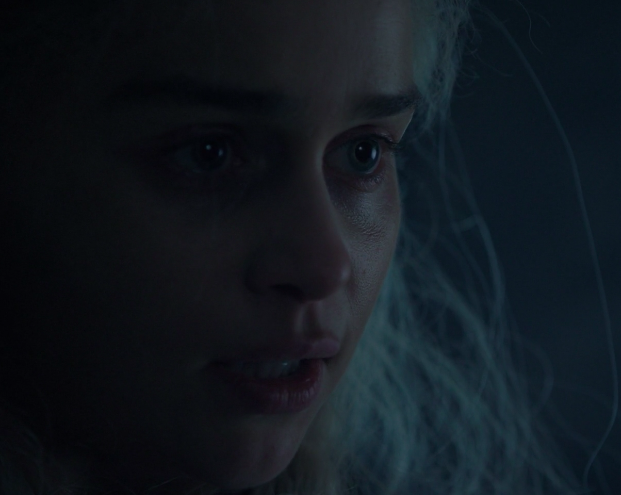
And this is confirmed moments later in a scene that included an embrace which could be the last between Jon and Dany. Dany tells Jon, “I don’t have love here, I only have fear.” As the two come together, Dany makes one last attempt to keep their love affair alive, but Jon just isn’t having it. It appeared he already had some misgivings about the relationship before learning of his true identity. Once he learned that she was his aunt, that was just too much. While the Targaryens have a long lineage of incestuous marriages, Jon is still a northerner at heart and just doesn’t roll like that. As Dany steps back from him, the two literally separated by Targaryen fire, she decides, “Alright. Let it be fear.” Though Dany has experienced a ton of loss in recent episodes, capped by Missandei’s beheading last week, it was ultimately Jon’s decision to not love her the way she wanted that pushed her over the edge. All she had left was fear.
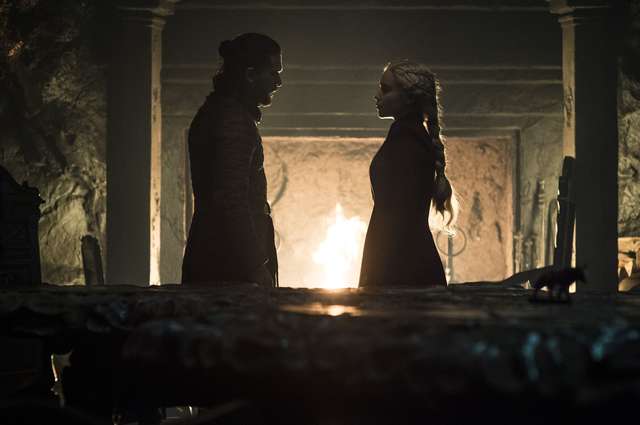
But before the idea of having to resort to ruling through fear gets the best of her, Tyrion tries to make one last plea. He begs Dany to end her siege if he is able to get Cersei’s forces to surrender, which he will signal by ringing the city bells. Dany does not respond to Tyrion’s request, and instead looks at Grey Worm and gives him a small head nod. At the time, I felt that perhaps she was affirming to Grey Worm that his troops should stand down should Tyrion be able to negotiate Cersei’s surrender, but in retrospect, we realize she was giving a totally different type of nod to Grey Worm. It was a show-no-mercy head nod; a fire and blood to avenge Missandei’s death head-nod.
Tyrion, attempting to avoid mass carnage at all costs, even commits treason against his queen by freeing her prisoner, Jaime. Tyrion convinces Jaime to save Cersei, escape King’s Landing and ride off into the sunset to start a new life together. This was a direct allusion to a conversation Missandei and Grey Worm had a few episodes back, in which they discussed sailing back to Missandei’s homeland to have a life together. Well, if Missandei and Grey Worm can’t have it, neither can Jaime and Cersei (but we’ll get there later). I had mixed feelings about this scene (as I did Jaime’s uneven character arc as a whole). On the one hand, I was touched by the heartfelt goodbye between the brothers. In a season that has botched so many of these moments, they managed to get this one right (perhaps that full credit should go to the acting of Peter Dinklage). In one of the biggest moments, with a huge war impending, we are reminded of Tyrion’s humanness as he breaks down to Jaime, telling him that he was all he had. The relationship shared between Tyrion and Jaime was always complex but beautiful and one of the heartwarming parts of this story. On the other hand, I took slight issue to the convenient spontaneity of the plan Tyrion proposed, as well as Jaime’s willingness to accept it. All of a sudden, Jaime is going to just convince Cersei to surrender, the two will escape King’s Landing, and ride off into the sunset no strings attached? To me, this felt like another example of the show getting ahead of the books, the writers not knowing how these characters’ journeys will end, and lazy writing leading to the creation of an implausible event to get Jaime from point A to point B. Had this not been the 100th example of this type of thing this season, I probably wouldn’t even mention it. Anyway, moving on…
King’s Landing
At this point, battle is imminent and there’s no turning back. The impoverished of King’s Landing flood into the city gates by the tens of thousands. Outside the gates, The Golden Company (Cersei’s paid mercenaries), oppose what’s left of Jon’s northern forces alongside The Unsullied and Dothraki. On the water, Euron mans his ships with their dragon-slaying weapons ready to go. Only this time, Dany swoops in from a much steeper angle, making it difficult for their weapons to be utilized, and in a matter of moments, Dany takes out all of Euron’s ships. The fact that Dany was able to take out all of these ships with such ease undermines the fact that she lost a dragon to these very same ships last week. Again, uneven storytelling in my opinion.
Dany had three dragons — the first dragons born into the world in hundreds of years — massive beasts that fly the sky and breathe fire. They should be extremely difficult to take out. I looked the other way when the Night King threw his ice spear thousands of feet into the sky and took out Dany’s first dragon, but I felt frustrated when Euron was able to take out a second dragon by shooting a fairly immobile projectile at a dragon flying through the sky at a high speed. But okay, it happened. But then one week later, Dany is able to eliminate this very same fleet in a matter of moments? It makes the death of her dragon feel like it was so avoidable.
After burning Euron’s fleet, Dany sets her sights to the city walls, and lays the initial round of fiery destruction, allowing for Jon and Grey Worm to lead their troops into the city on foot. Dany provides aerial support, and it’s only a matter of moments before it becomes abundantly clear that this battle was over before it started. Cersei’s troops lay down their weapons, and at this point, the battle has been won. Team Dany could have reinforced their position, sacked the city and Dany could have been sitting on that shiny Iron Throne by nightfall. But as Dany sat atop her dragon overlooking King’s Landing, a strange combination of sadness, excitement and terror came over her face all at once. Ladies and gentleman, The Mad Queen had arrived, and King’s Landing would stand no chance.
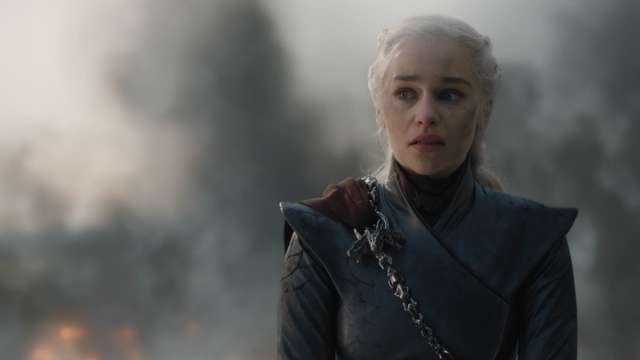
“Madness and greatness are two sides of the same coin. Every time a new Targaryen is born, the gods toss the coin in the air and the world holds its breath to see how it will land.” As those bells rang loud and clear, signifying the surrender of King’s Landing, it became crystal clear which side of the coin had landed. The Mad Queen and Grey Worm shared in a thirst for blood and revenge, as he led the slaughter on the ground, while from the air, Dany burned the city to a crisp. Symbolic of the broader dynamic he is caught in, Jon literally got stuck in the middle as he had no desire to slaughter the surrendered troops, but was forced to keep fighting, as he also attempted to get his troops to fall back. Jon’s morality was outmatched and he could not stop the fire and blood that was to come.
Arya & The Hound
It’s no secret, The Hound has been my favorite character in this story for many years. There have been many great duos in this story, but the journey he shared with Arya was by far my favorite. So it was exciting to see them sneak into King’s Landing together and arrive at The Red Keep, though also nerve-wracking as a sense of death was imminent. The Hound and Arya arrived at King’s Landing for the very same thing — revenge. For pretty much as long as we have known these characters, they have both been driven by their unrelenting quest for vengeance. The Hound has been wanting to exact revenge on his older brother, The Mountain, who held his face to the fire as a young boy and forever changed his physical and emotional identity. Similarly, Arya was forever changed when she lost her father (and others) at the hands of The Lannisters, and for that, Cersei has always been at the top of her hit list.
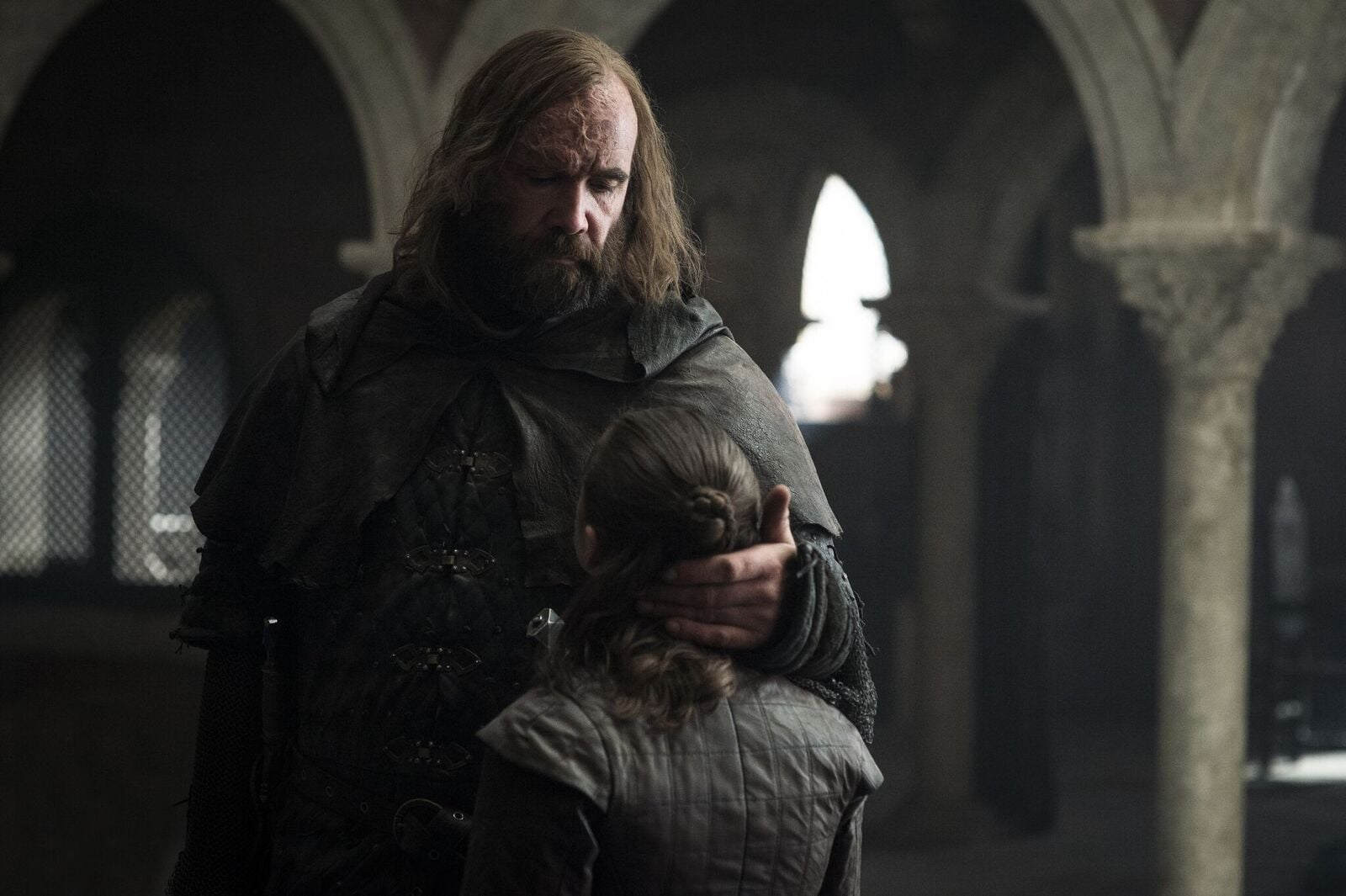
But as the two reach their moment of destiny, their roads fork in different directions. The Hound knows that ascending The Red Keep will only lead to death, and though he has not been able to find it himself, knows that there is more to life than revenge. The Hound delivers an absolutely masterful performance in this final scene between the two, a final moment that reminds us of what we always knew and loved about him — beneath that tough and damaged exterior, there is a great man. His words were powerful enough to convince Arya to walk the other way, and before they part, Arya calls out to him “Sandor, thank you.” It has only been a couple of times that anybody has called him Sandor, and this was a powerful reminder that he is not a hound, but a human, and a great one at that.
I’ve included two videos below. The first is an audition tape of Rory McCann reading for the part of The Hound. I’ve included this video because 1) it captures how perfect Rory McCann was for the part of The Hound, even from his first read; 2) the lines he reads tells the story of what his brother did to him; 3) at about 1:08 in, he has a line where he yells “look at me!” The producers of GoT said right after that part of the audition, they were sold that he was the one for this part. Writers chose to use that same “look at me!” line in the final exchange between The Hound and Arya tonight (at about 48 seconds in the second video). Pretty amazing that they went all the way back to his audition from about 10 years ago and used his performance of that line as one of his very last lines he would speak before dying.
As The Hound faces off with The Mountain, it quickly began to feel like his death was imminent. There was no coming back from this — something he himself had already known. The Hound fought with great determination, but we quickly learned that this zombie-version of The Mountain simply couldn’t be killed. In some ways, this felt very frustrating — the revenge The Hound had been searching for all his life simply wasn’t attainable. Though, his death was poetic, as he realized he too would have to die in order to eliminate his brother. And, in doing so, he tackles his brother off the ledge as the two fall into the fire below, the very fire that The Hound had been scarred by his entire life.
I would like to offer a heartfelt RIP to Sandor Clegane, aka The Hound. In my opinion, he was one of the most beautifully complex and sadly tragic heroes of this entire story. In the earliest days of the show, when he was protector of Joffrey, we thought he was nothing but a grotesque monster. But then we saw the ways in which he protected Sansa from Joffrey’s cruelty, eventually trying to get her to escape King’s Landing with him (though she refused). In his own way, he began on a path towards righteousness, first protecting Arya on their journey together and later serving his purpose in The Great War against The Night King. The juxtaposition of his hardened exterior next to his warmer interior made him such a wonderful character. At the same time, it is so tragic to consider the life he was condemned to; betrayed by his older brother at such a young age, physically and mentally scarred forever as a result. This changed the way he would see the world, yet still, he was able to show in his own ways what a good man he truly was. RIP Sandor, we will miss you.
What’s The Deal with Arya?
While I always enjoy screentime with Arya and The Hound together, once she went out on her own, I was rather confused by what the hell was going on with her story. For starters, I felt like she was a rat in a maze, running along the streets of King’s Landing with no discernible destination. I totally appreciate that she pivoted from her plan to exact revenge on Cersei, and now is playing the role of hero in helping others try to escape the fiery mess, but I mean what is going on with her story arc here? She comes back to King’s Landing and ends up being the one to take out The Night King. Cool. Then she learns of Jon’s true identity and it seems like she is going to take a stand against Dany and push him to pursue his claim to the throne. That then goes out the window as she joins up with The Hound to head to Kings Landing. Okay, I can live with it. But, then she gets to King’s Landing, and in a matter of 30 seconds, she is completely talked out of the very reason she came there. This is where my issue starts.
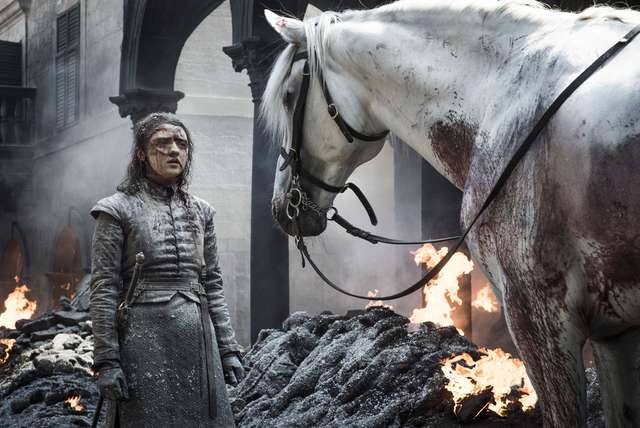
While I don’t want to take anything away from The Hound and the beauty of him ultimately protecting Arya from the death that was awaiting her above, this storytelling just didn’t feel right. First off, Arya has been wanting to kill Cersei for years now; Cersei was at the top of her list and at times, it was the only thing that got her through the day. After all of those years, in a matter of mere seconds, she can so easily be talked out of her grand plan? And if so, why didn’t they have this conversation in Winterfell? Or, better yet, along the two-week journey from Winterfell to King’s Landing? Were they that busy during the two weeks it took them to get to King’s Landing, that they couldn’t have spoken about Arya not living a life fueled by revenge? Did it need to wait to the very moment that they had finally reached The Red Keep and Cersei was just a few more steps from Arya?
And, food for thought, given how the next scene played out where Cersei simply walked by The Hound untouched, Arya actually could have very quickly taken her out without dying. All that withstanding, I found the rest of Arya’s involvement in this episode frenetic and confusing. It felt like she was running around for the sake of it, getting knocked out several times, then getting back up, all for what? In the end, she didn’t save anybody. And then she just rides off on her white horse? I could write five different things her riding off on that horse could be symbolic of, but honestly, I don’t want to bail out the poor storytelling. It’s been rather unclear for most of this season what Arya is really after, and though I enjoyed the fact that it was The Hound that saved her, I simply don’t feel her character arc is being closed out soundly.
Jaime & Cersei
Speaking of uneven character arcs, what the hell kind of ending is this for Jaime? Another one of this story’s more complex characters, he went through much self-discovery and we saw the many different sides of who Jaime truly was at his core. If the show wanted to end his story with the message that his identity was ultimately defined by his love for Cersei, I am okay with that, but why so much back and forth in between? He went from bad guy at the beginning of the story, to good guy when he saved Brienne, back to questionable guy who returned to King’s Landing to support Cersei, then again to good guy who went to Winterfell and fought to save humanity. At that point, it seemed like his good-guy status was cemented, especially after his deepened relationship with Brienne, but then with the flip of a switch, he’s off in the middle of the night to return back to Cersei. Many hypothesized that he was putting on an act and that he was actually returning to King’s Landing to take out his sister, but that turned out not to be the case. He actually returned to try and once again support her, which in my opinion, simply undermines so much of his previous story.
Sure, it was a storybook ending to see Cersei and Jaime go out of this world the same way they came in — together. But what was it all really about? Again, I have to believe this is just another example of the writers not really knowing how Jaime’s character arc truly arrives to his final moments, and the show having to come up with something. I also felt a little underwhelmed with Cersei’s ultimate demise. I didn’t need an expected ending such as her being killed by Arya, but I did expect a bit more from her on her way out. After all, since The Night King got killed earlier in the season, didn’t that mean she was the ultimate villain? She basically just stood there, looking on, for the entire episode, as Dany burned the city. All of a sudden Cersei doesn’t have a counterpunch planned or trick up her sleeve? This battle was supposed to be Cersei vs Dany, but ended up being Dany vs nobody, and I was a bit flabbergasted that the story ends with Cersei simply watching on and doing nothing.
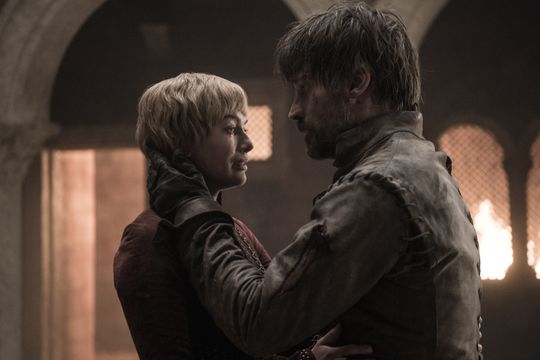
Lastly, I have to ask, what in the world was the deal with Cersei’s “baby?” First she was pregnant and it was Jaimes. Next she’s drinking copious amounts of wine as if she’s not pregnant at all. Then Euron wants to put a baby in her belly, and then out of nowhere, she tells him that the baby is his. Was she pregnant? Was she not pregnant? Who was the father? Does it even matter? The answer seems to be no, and if it ended up not mattering at all, why so much dialogue in so many episodes about this damn baby? Not cool.
Oh, and I forgot to mention that Jaime fought Euron. Perhaps, because it was completely forgettable, as is Euron’s entire character in this show since day one. Another example of not having any better way to end Euron’s story, an obligatory fight between he and Jaime is thrown into the story. How fortuitous that the very moment that Jaime is trying to sneak into King’s Landing through a hidden entrance, Euron happens to be stumbling onto the very same shore after his boat just got blasted by dragon-fire. The fight was nothing special, and I found it particularly strange that they chose to write him a final line of “I’m the man who killed Jaime Lannister,” given that he didn’t kill Jaime, and Jaime ended up dying with Cersei after being buried beneath the destruction of The Red Keep.
Who’s at Fault?
One of the more powerful parts of this episode was watching Tyrion rummage through the rubble of the utter death and destruction that Dany had caused. This was obviously painful for Tyrion to see, knowing just how badly he wanted to avoid this very outcome. And all the more so given that he is hand to the very queen that was capable of such brutal destruction. But above all else, the sharpness of this moment is the realization that he was totally and completely wrong, in almost every way possible. In the episode prior, when Varys had been questioning Dany, Tyrion told him “It’s about picking one person you believe in and defending that person.” Well, boy did Tyrion pick the wrong person.
But I believe it goes a layer deeper than just picking the wrong person. After all, it’s not as if he just picked her and walked away, unable to have any affect on the outcome. It was the opposite. He was her hand — her closest adviser — he had more ability to influence her decisions and their outcomes than anybody else in Westeros. And yet, he finds the capital city burnt to a crisp with tens of thousands of innocents dead. So, it begs the ultimate question: was Tyrion a good adviser to Dany?
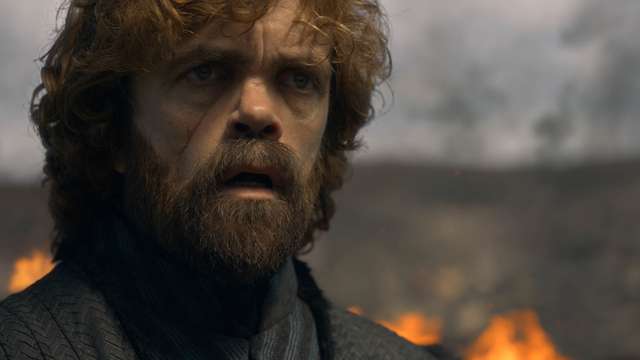
I say no. Tyrion is a lot of things; he is kind, he is compassionate, he is clever — the list goes on. And I think he would make an excellent hand to many, given his wonderful balance of these critical attributes — but not to Dany. In the end, I believe it was Tyrion’s sense of compassion that led to Dany becoming The Mad Queen. What we know about Dany, above all else, is that she is not only the mother of dragons, but a dragon herself. She came out of the fire unburnt, she brought dragons into the world, and she is as fierce a Targaryen as they come. We always knew Dany had both compassion and ferocity in her, the balance of which would make her a great ruler. She had the capacity to show kindness and empathy when needed, and did want to make the world a better place if given the chance. At the same time, she was fierce and ruthless when she needed to be. Possessing such diametrically opposed attributes, I would argue that the most important task of Dany’s hand would be to keep these two sides of the coin in check. And that is something Tyrion failed to recognize altogether.
Tyrion was always encouraging Dany to be patient, to be compassionate, to be merciful. He wanted her to be how he himself would be in the situations she faced. And in doing so, he often kept her Targaryen fire extinguished. Dany is a dragon, and if it were up to Tyrion, that dragon would have always been kept in its cage. Looking back, Dany’s decision to lay waste to King’s Landing had been foreshadowed many times and Tyrion knew this, but was ignorant to it. For instance, in season six, when Mereen was at conflict with other slave cities, Dany told Tyrion “I will crucify the masters. I will set their fleets afire. I will kill every last one of their soldiers and return their cities to the dirt. That’s my plan.” And what did Tyrion do? He talked her out of it, pushing the dragon back into her cage. Even before that, in season two, Dany talked about how she planned to “lay waste to armies and burn cities to the ground.”

As we can see above, Dany decided to crucify the slave masters as punishment for their actions. While I’m sure none of us felt bad for them, it does take a certain kind of crazy to stake humans to a post while they are still alive and breathing. Looking back on all of this, we always knew Dany possessed the fiery madness to take things too far when provoked. Tyrion had a single-minded approach of trying to always extinguish Dany’s fire, and he was successful in doing so for quite some time. She listened to him time after time as he coached her to take the highroad, to avoid becoming the kind of tyrant that she herself wanted to rid from the world. What he didn’t realize, though, was that he was helping to create that very person. His guidance of continuing to show restraint, coupled with some poor military decisions, led to Dany losing a lot of what she held most dear, including two of her dragons, half her army, Jorah and Missandei. Not all of these losses were Tyrion’s fault, but he shares in plenty of the blame and played a large role in the back-against-the-wall scenario that Dany found herself in. Great a man as he may be, Tyrion simply was not the right hand for Dany, and ultimately played as large a role as anybody in turning her into The Mad Queen.
Queen of the Ashes
I cannot say Dany’s character turning into The Mad Queen came as a surprise, though I can say I am somewhat irked by it. I get all the reasons why it happened, but I do feel that A) it was a bit rushed and B) it undermines her seemingly never-ending journey leading up to this moment. On the first point, I think her transition into becoming The Mad Queen simply could have been a bit slower and more developed. For 67 episodes she was on a mission to rid the world of the cruel rulers, and for the last five she all of a sudden started to show signs of a transition into The Mad Queen. Yes, I recognize how much she lost in the last few episodes — but that too was rushed — and I simply feel there is great incongruity between the amount of time she spent being one person, and how quickly she was able to full-fledge become another. As I pointed out above, there were certainly flashes of her madness along the way, so it’s not as if this came out of the blue, but still, her transition could have been developed at a pace that was a lot more balanced.
But more so than the pace at which this all happened, I feel like the first seven seasons of her story were totally undermined. We are talking about the girl that went to the end of the earth and back; the mother of dragons; the breaker of chains; the girl who so many times could have taken the easy route and ended things with fire and blood, but chose not to, because her entire character’s motivation was built around the idea of leaving the world a better place. The lengths she went through to preserve this very idea are mind-boggling. At times, it truly felt like she was on a never ending journey, solely guided by the faith in her desire to change the world. And tonight’s episode simply made all of that worthless. She could have done what she did tonight years ago, and saved a whole lot of people a whole lot of time. But she didn’t, because she was meant for something greater. Why save so many slaves only to kill so many innocents? Why save an entire city only to destroy another? I get that character arcs can change and that is often what makes characters in this story so wonderful — the unpredictable nature in which their motivations and actions may pivot. But this was different. This was too much of a pivot, all too quickly, and it simply undermined way too much of her backstory for it to be understandable.
The irony of it all? Dany destroyed the very city that her ancestors built. It was 300 years ago that Aegon Targaryen landed ashore Westeros and eventually united The Seven Kingdoms under his kingship. As new king, he founded the capital city at the spot where he had landed his dragons, and named the city King’s Landing. Over the years, House Targaryen built a great capital city as they ruled for 300 years, and in just one day, Dany destroyed almost all of it. Her father, The Mad King, is regarded as an absolute madman for his intense paranoia, obsession with fire, and the cruelty he demonstrated in punishing people with death by fire. If that’s the reputation he built for those actions, how will history remember the woman that burnt down the entire capital city that her ancestors built, killing thousands of innocents along the way?

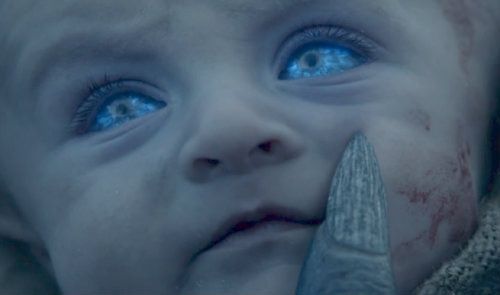

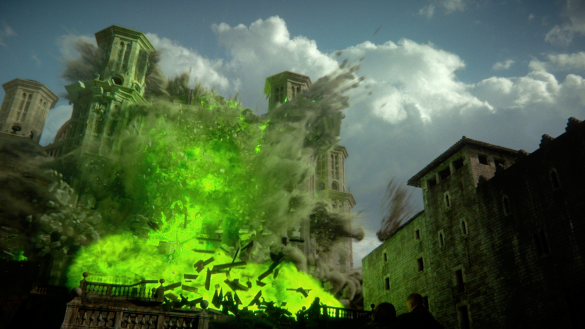
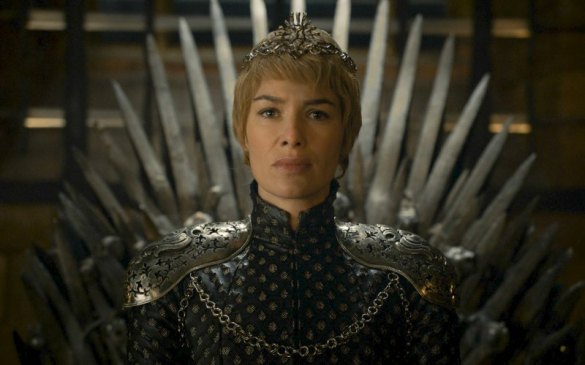
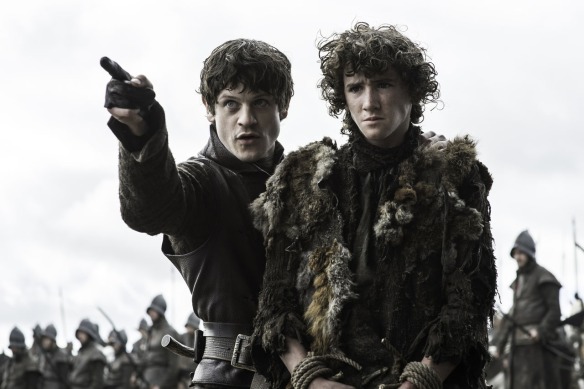
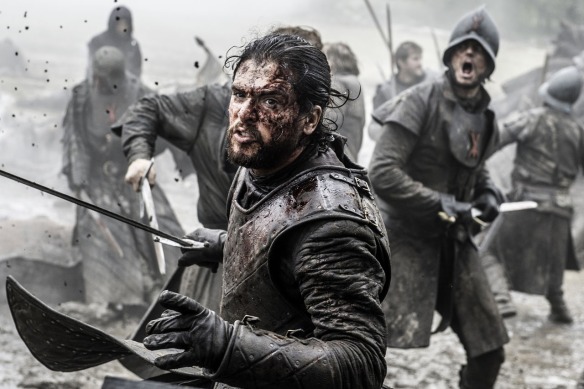
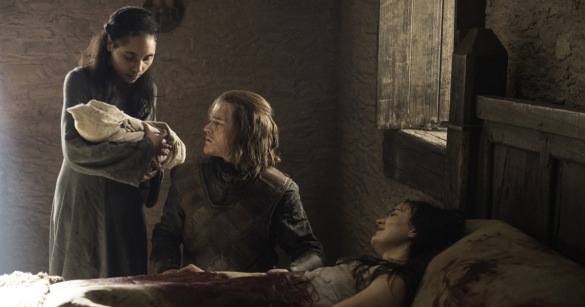
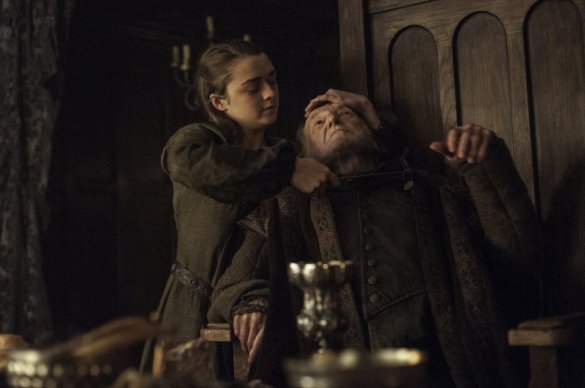

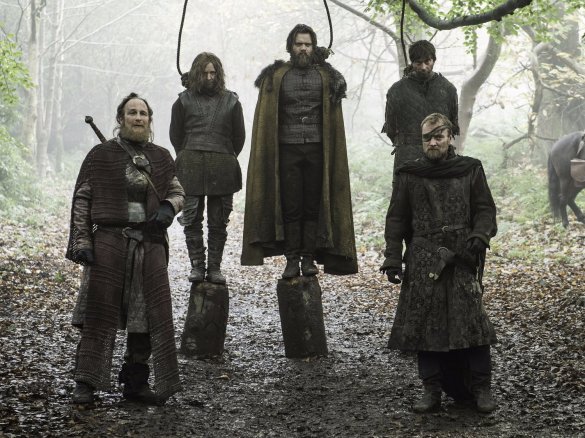
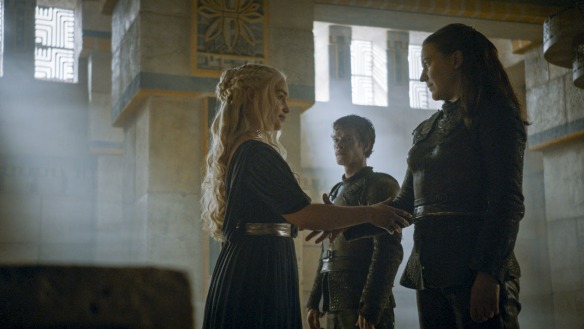
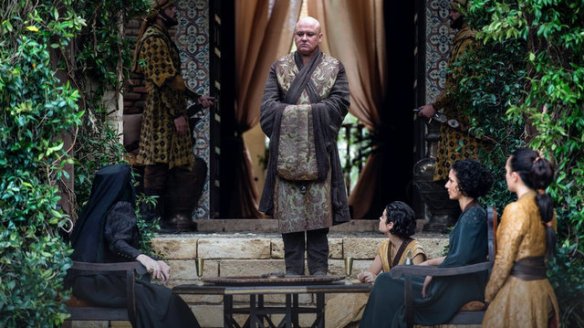
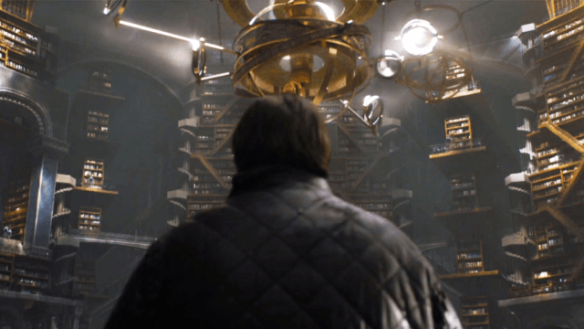

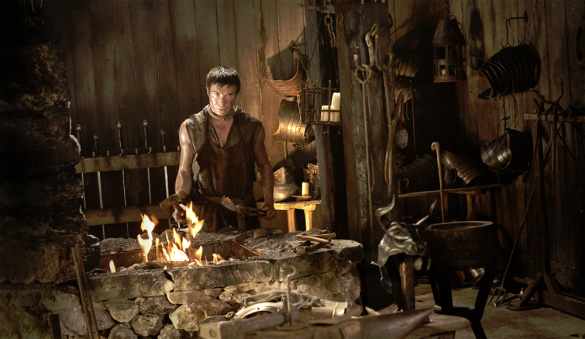
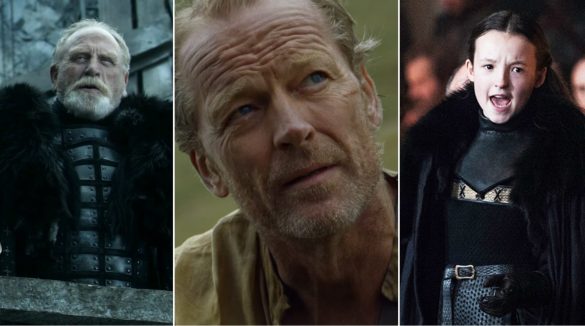

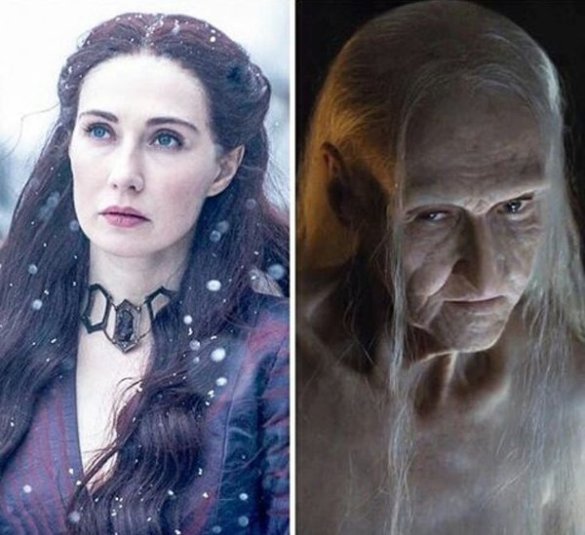

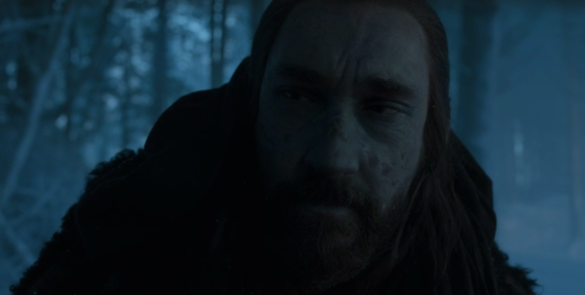
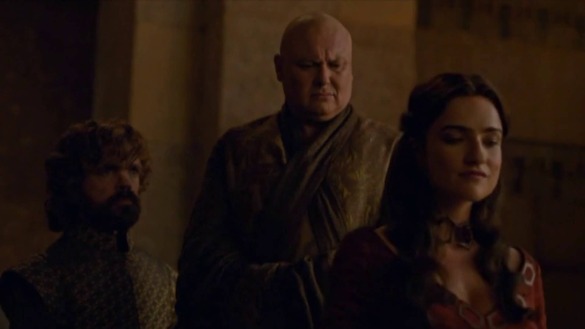

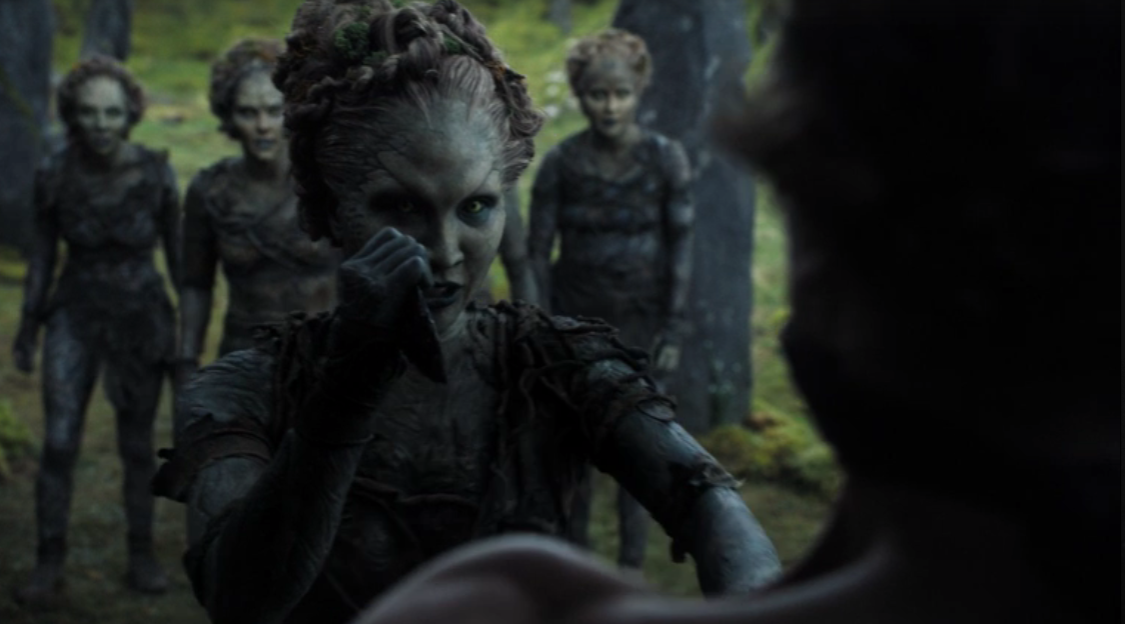
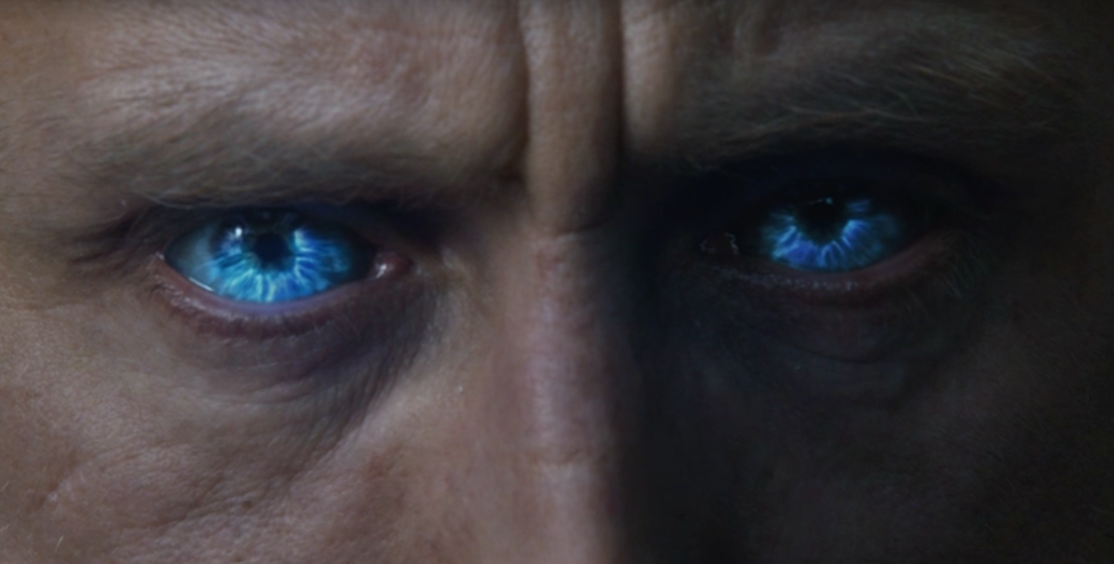
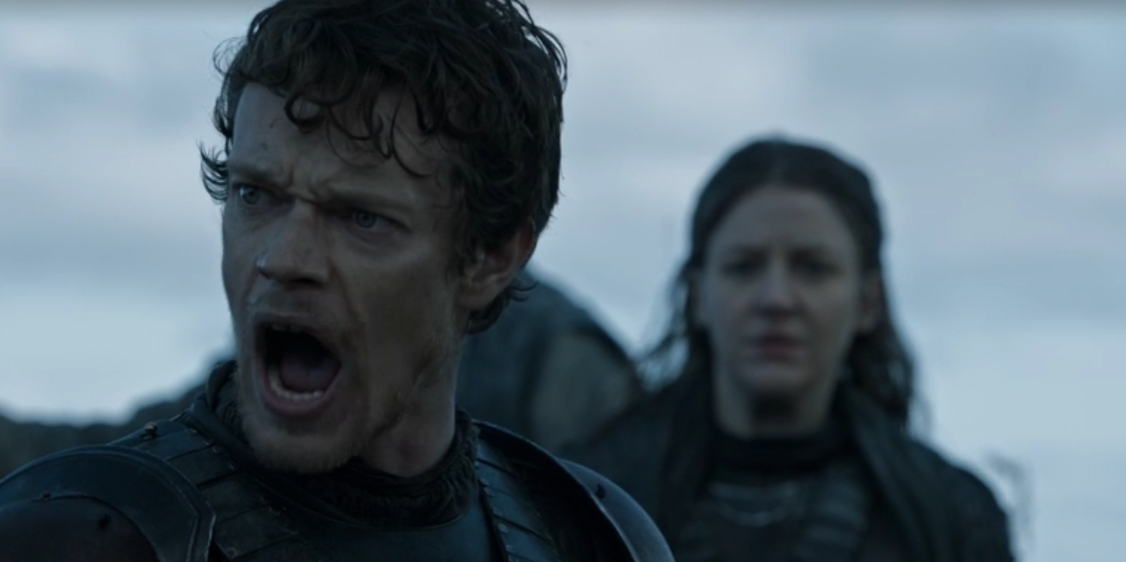
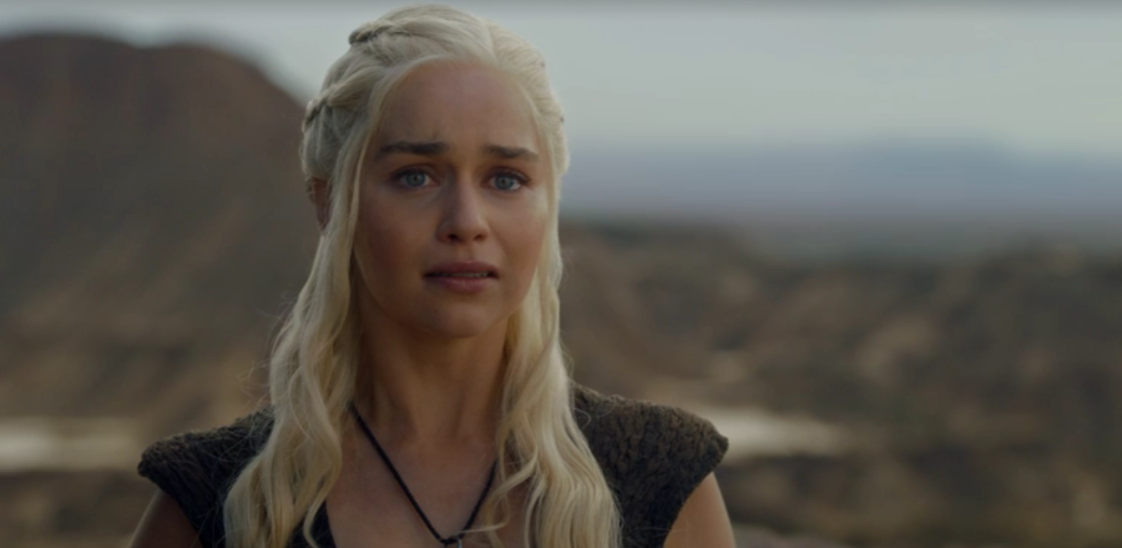

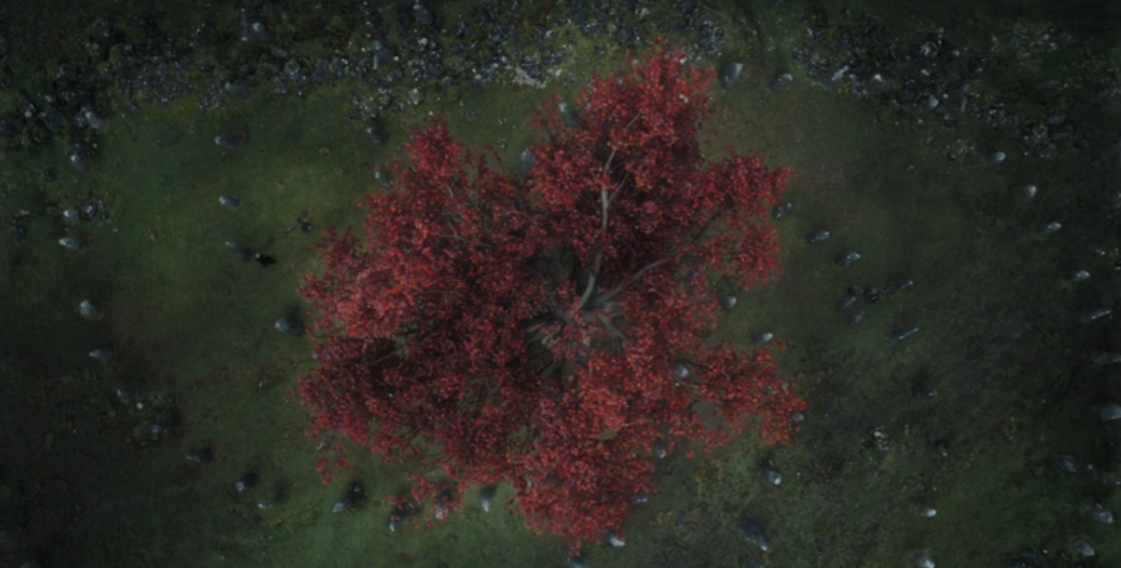
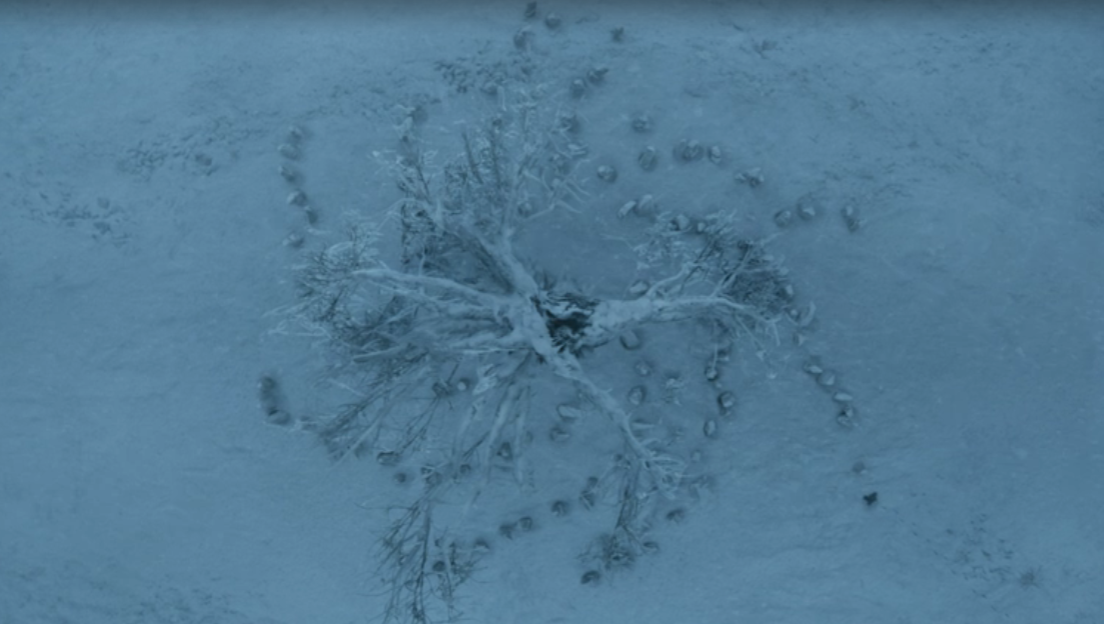
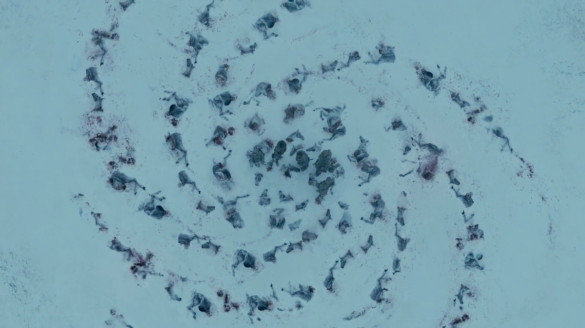
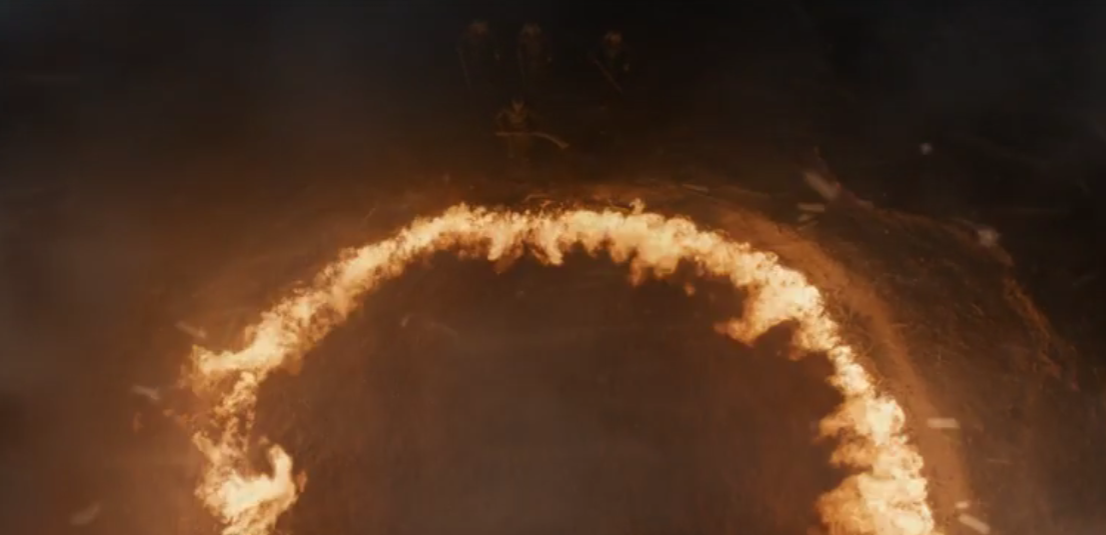
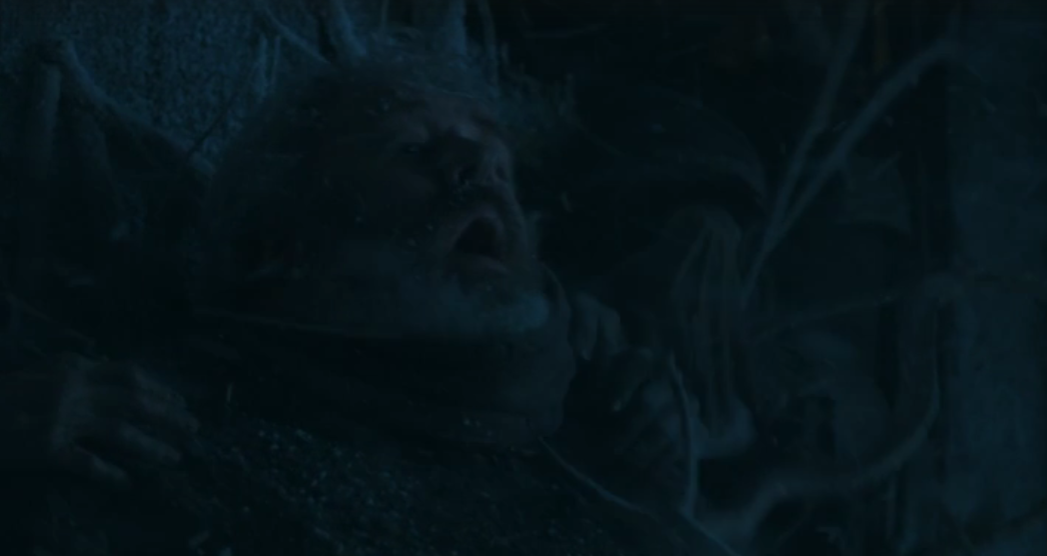

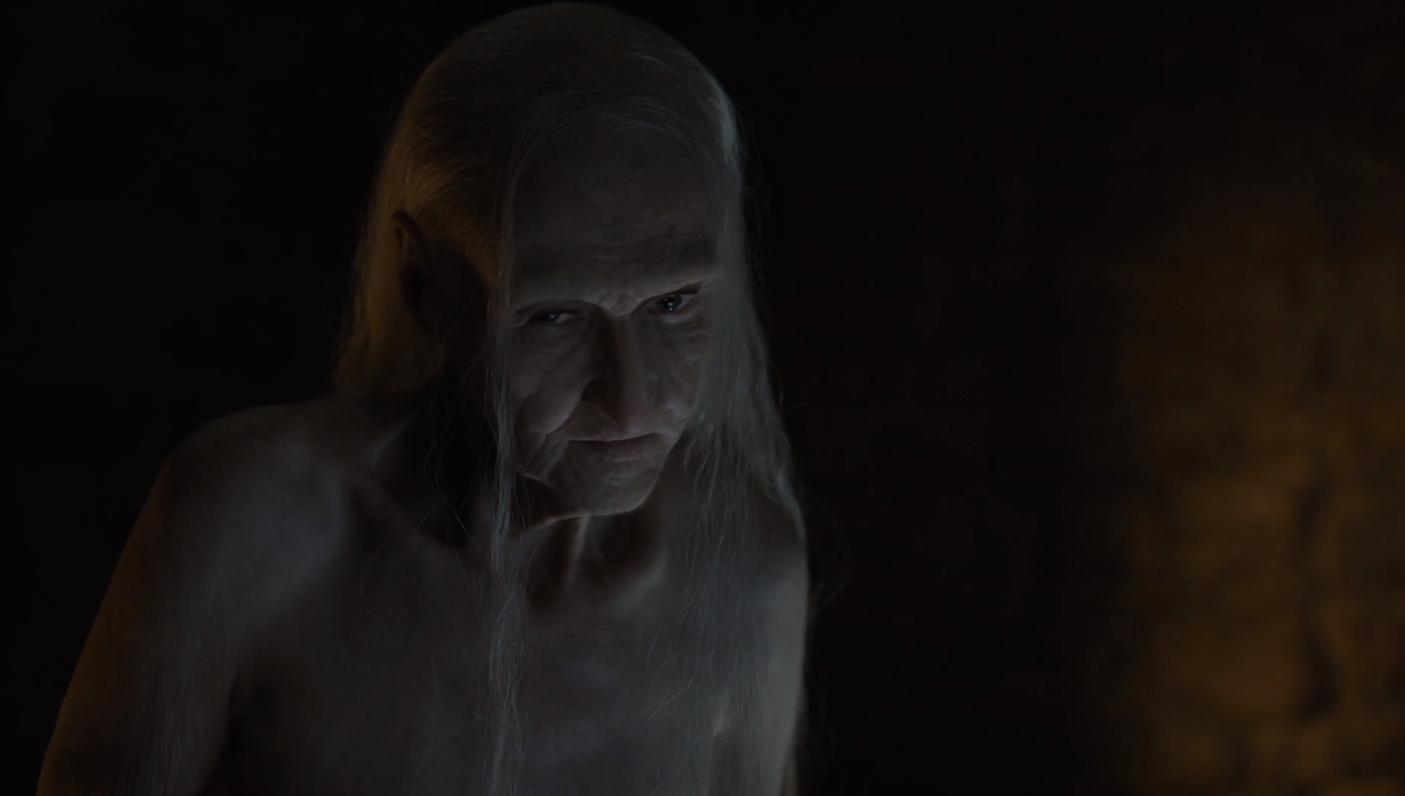

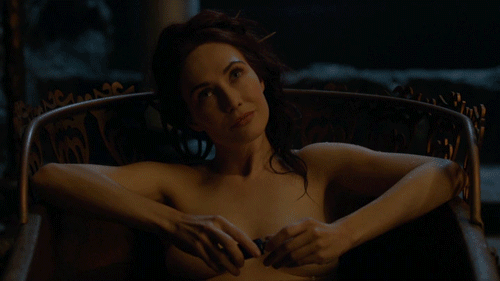
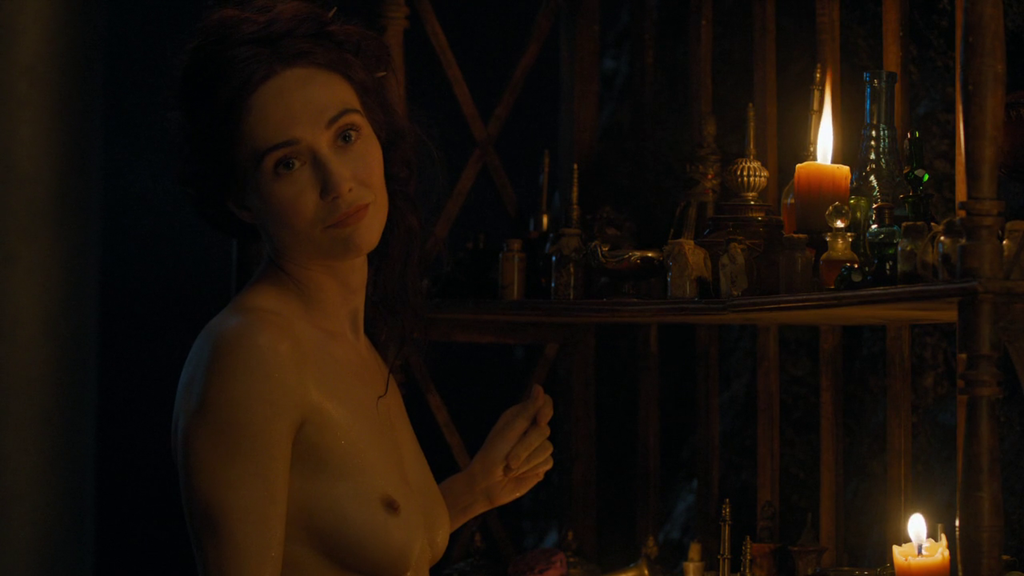
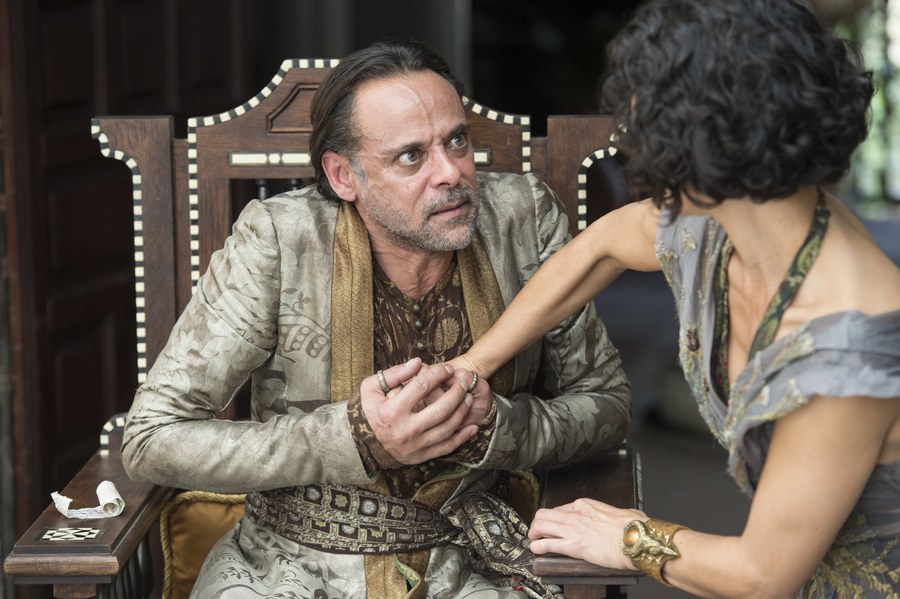
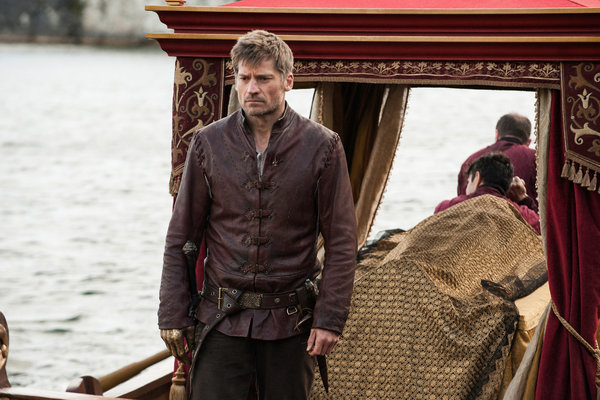
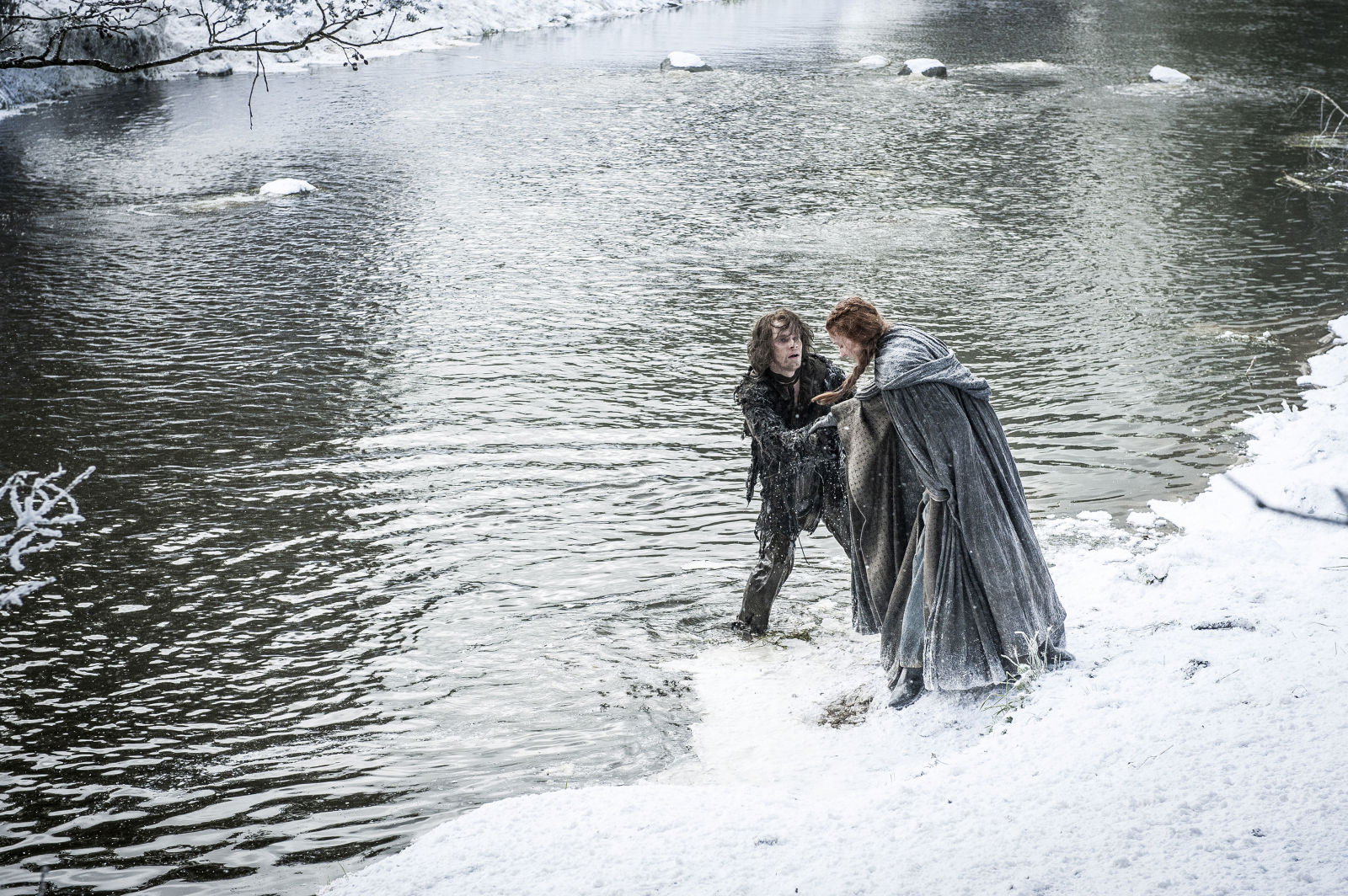
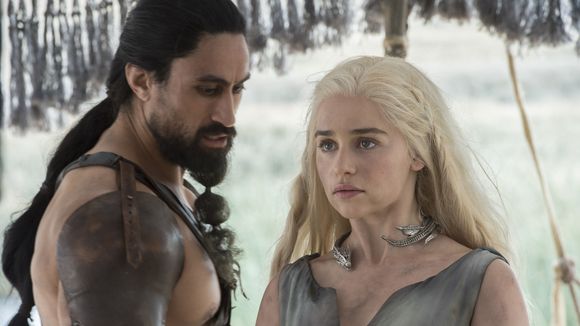
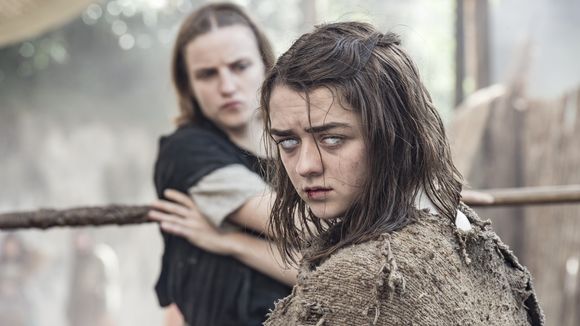
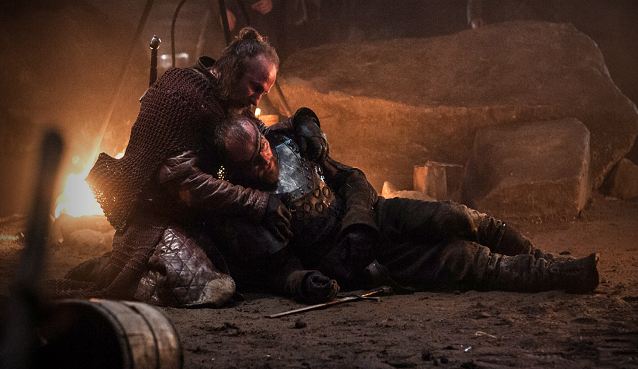 Gendry
Gendry Yara & Balon Greyjoy/Iron Islands
Yara & Balon Greyjoy/Iron Islands